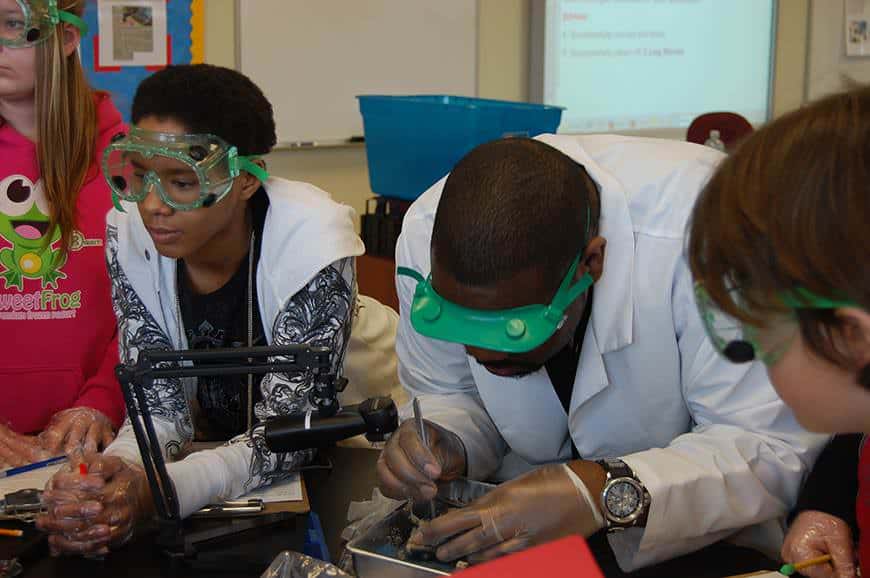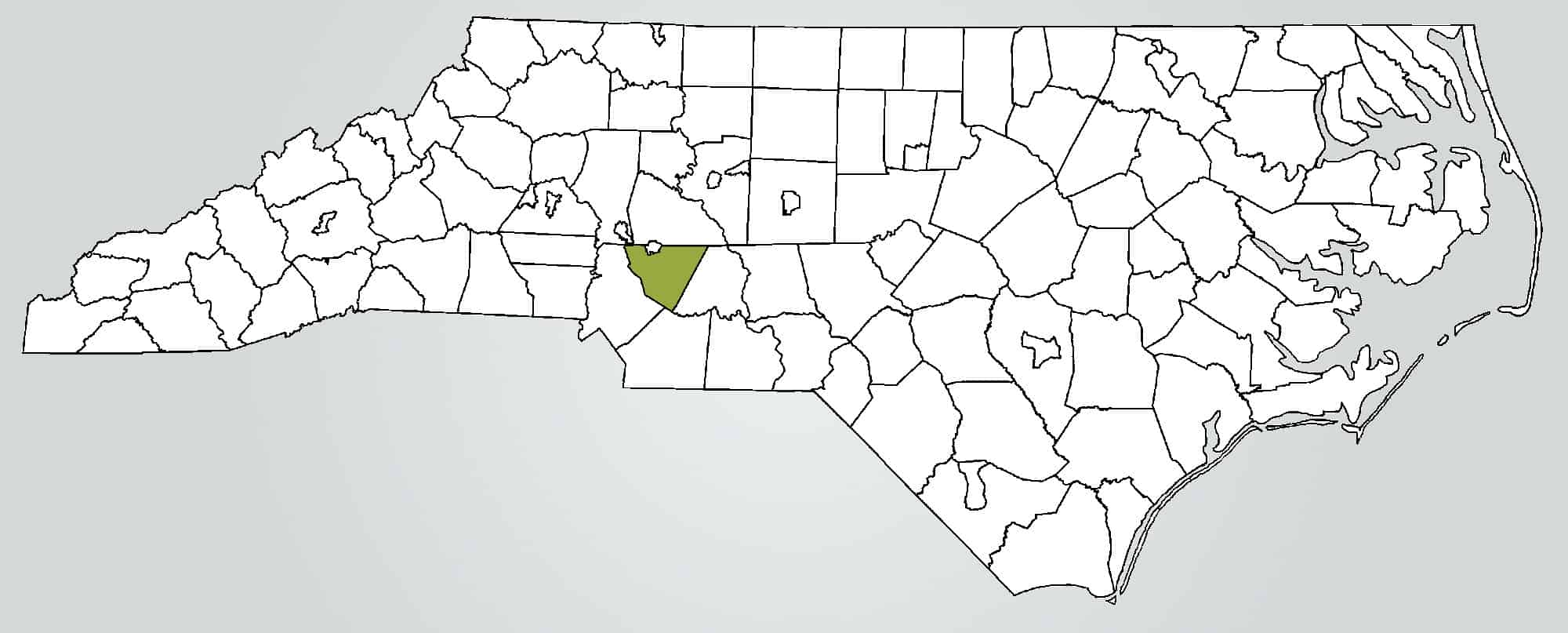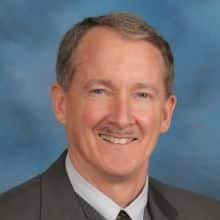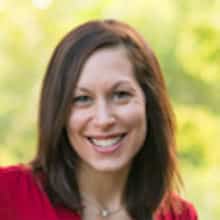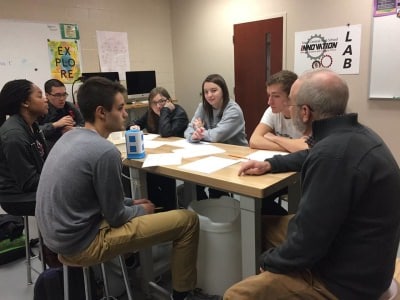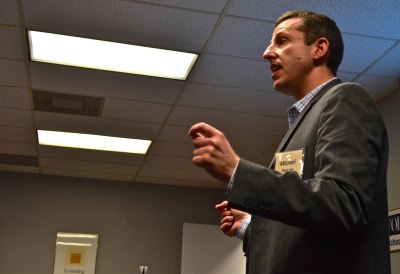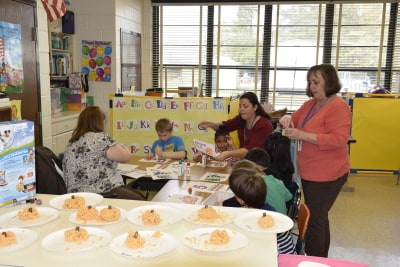VOICES FROM THE 31ST ANNUAL EMERGING ISSUES FORUM
In 2011, Cabarrus County Schools (CCS) established a K-12 STEM pipeline. Five years later, this unique and successful approach to STEM education has drawn national attention as demonstrated by the recent Investing in Innovation (i3) grant that was awarded to CCS.
The i3 grant, named INSPIRE (Infusing Innovative STEM Practices Into Rigorous Education), addresses the national need to develop an integrated K-12 STEM pipeline, which serves as the model for STEM course content and instructional redesign. CCS continues to improve the rate at which students remain in the STEM pipeline from elementary to middle school causing waiting lists at each of the schools.
CCS has identified two additional elementary schools in the district to open as STEM schools in the fall of 2016 to keep with the great demand by our community.
The STEM approach significantly increases student engagement and the implications will lead to continued engagement in STEM field’s post secondary graduation.
In the STEM pipeline we focus on four primary objectives that support the ultimate goal of preparing students for STEM-related study and work after high school. The objectives focus on:
- Developing rigorous Problem-Based Learning (PBL) curriculum
- Tech-enabled personalized learning strategies for students
- Creating high-quality teacher development and support
- Amalgamating real-world student tethers with STEM course content
- Cultivating and nurturing relationships with surrounding businesses
Each objective, braided together as one cord, supports the K-12 continuum in order to retain students in the pipeline and create College and Career Ready graduates for STEM related fields.
1. Problem-Based Learning
Our team has developed a multifaceted framework that is utilized by all STEM teachers when developing instructional lessons and projects. The conceptual framework is based on common characteristics identified in successful PBL environments: student centered, real-world contextualized problems to encourage student-directed problem solving, multidisciplinary focus, self-regulation and collaboration, reflection and evaluation, and closing analyses. PBL development is considered one of our instructional best practices. In order to reach as many students as possible, we have developed a PBL database to share the most effective lessons with our fellow teachers. At the conclusion of our grant period, CCS will provide this database to the United States Department of Education so that our lessons can be disseminated to all educators.
2. Personalized, Tech-Enabled
CCS layers PBL course content with personalized instructional practices. This learner-centered approach driven by technology is expanding across the K-12 STEM pipeline with the use of a variety of technology devices as students explore content and interact with teachers in various digital learning spaces. Our students have access to a personal device from the second grade to the twelfth grade. Creating a casual environment with technology has helped our students to become comfortable and confident with the uses and capabilities of different modes of technology.
3. Teacher Development and Support
All teachers have been trained and continue to be supported in PBL teaching strategies. CCS conducts training during school in-service days and coordinates annual four-day curriculum review weeks to connect the K-12 continuum. As a celebration of this work, CCS hosts an annual Innovative Teaching Showcase for teachers to share their STEM PBL best practices. In addition to traditional professional development, CCS has developed an annual five-day summer “STEMersion” experience for teachers that immerses them in local business environments to assess the practical use of formulas, theories, and concepts used in the classroom. This has been our most successful and relevant professional development for STEM teachers to date.
4. Student Real-World Tethers
CCS has developed a variety of successful extensions beyond the classroom to support student engagement and achievement. Authentic assessment and exhibition of STEM skills is provided through opportunities aligned to PBL units such as: student competitions (Odyssey of the Mind, Science Olympiad, Robotics), Senior Capstone Projects (culminating PBL research project), alignment of STEM content to annual field trips, NASA Summer Camp, and internships.
5. Fostering Community Relationships
Our partnerships with the community and businesses are key to keep our instruction relevant and real world focused. We recognize the fact that many of the jobs and careers that we are preparing students for will continue to evolve, change, and, in some industries, become obsolete. It is imperative that we keep a pulse on the industry changes and make the necessary adaptations to our professional development for teachers and instruction for our students.
Our students have spent years in an environment that requires the use of “Design Cycle” thinking. This means that when they are faced with a challenge they go through a process of reasoning to help them come up with the best solution. They look at challenges as part of learning and growing. CCS will graduate our first STEM cohort in June 2016 and we will watch with pride and honor as they go out into the world prepared as problem solvers, ready for the challenges of a changing workforce.
These will be our leaders and innovators of tomorrow.
The future looks bright!
